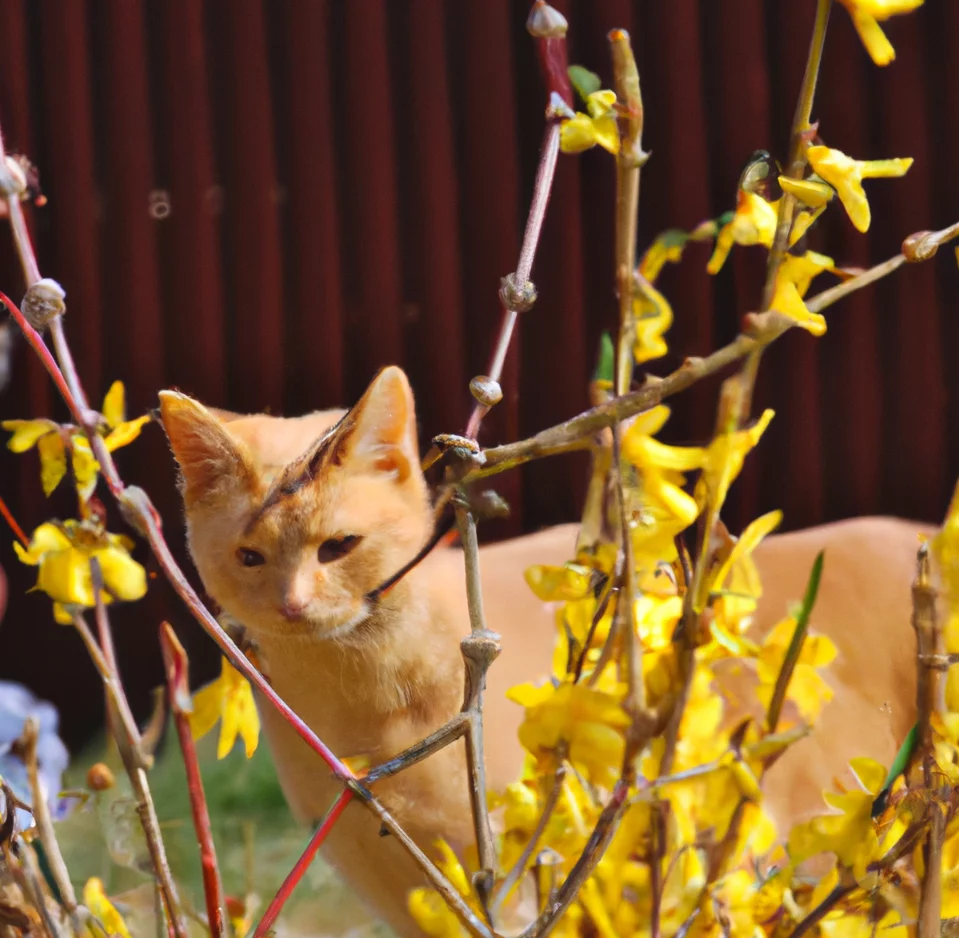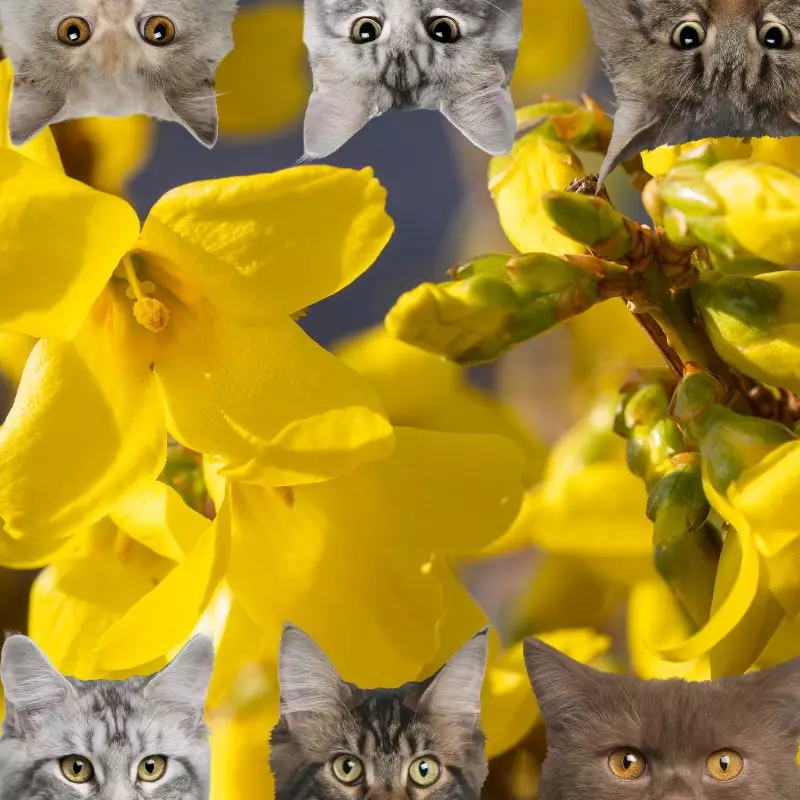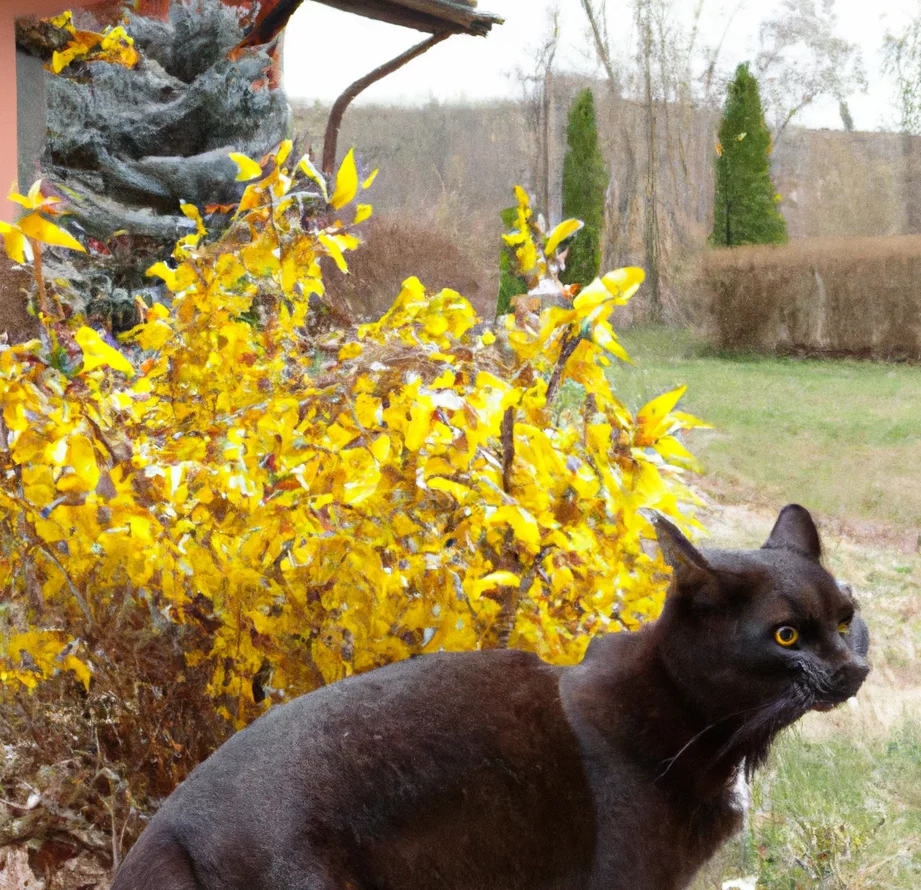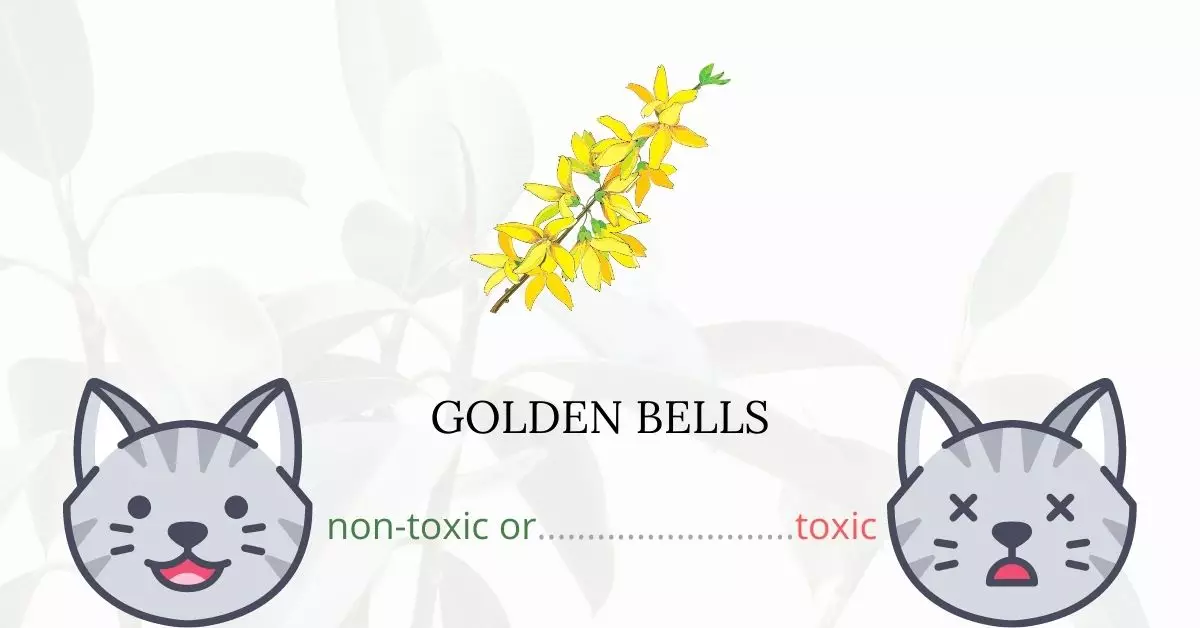Golden Bells, also known as Forsythia, are not toxic to cats.
In our extensive research, which has been conducted in collaboration with a team of experienced DVMs (doctors of veterinary medicine), we’ve found that these vibrant blooms are consistently listed as non-toxic on reputable resources, including the ASPCA (American Society for the Prevention of Cruelty to Animals) and PetMD.
With approximately 11 varieties of Forsythia identified, none have been found to contain harmful components, ensuring their safety in households with feline companions. However, it’s crucial to understand that while a plant might be non-toxic, it doesn’t necessarily mean it’s safe for consumption. Read on to delve deeper into considerations you should take into account before letting your cat interact with or ingest any plant.
Can Cats Eat Golden Bells or Forsythia?

Cats will not be harmed if they had a bite of golden bells or forsythia. Since the plant does not have toxic elements, there is no need to panic.
But, keep in mind that too much plant intake can cause indigestion and gastrointestinal problems in cats. Because our feline companions cannot completely digest plant matter, their body tends to eliminate it by vomiting or diarrhea. Once the plant material is out of their system, the symptoms will eventually go away.
Aside from this, plant care products used on golden bells and other plants can affect cats. If they happen to consume a portion of a plant with toxic chemical residue from a product, it may cause intoxication and severe complications. It is important to always be cautious with the products you use on your plants.
What are Golden Bells or Forsythia?

The golden bells, sometimes known as forsythia, are deciduous bushes with rough grey-brown bark. The plant can reach a height of one to three meters and, in rare circumstances, six meters. Its leaves are usually simple and borne oppositely, although they can be trifoliate with a basal pair of small leaflets and a serrated or smooth border. The stems of this plant can be hollow or chambered, depending on the species.
Forsythia flowers arise before the leaves in early spring and are bright yellow with deeply four-lobed petals connected just at the base. The fruit of the plant is a dry capsule containing several winged seeds.
Keeping Cats Away From Golden Bells or Forsythia
To safeguard the golden bells in your garden, it is best to restrict your cats’ outdoor access. Keep your feline companions engaged and stimulated indoors so they will less likely go outside and wander around.
You can also try using deterrents but be sure to use the natural ones. Read the label for ingredients and instructions on how to use them before putting them on your plants.
Training the felines to stay away from your plants at home is still the most effective way to protect your plants. It may cost you time and effort but I guarantee you that it’s worth it once your cats learn not to touch your plants.
Plants to Avoid For Your Cats
If you are a cat owner and unsure if the plants growing in your yard are harmful to your cats, check out this list of toxic plants for cats. You can also check our list of non-toxic plants for cats.





